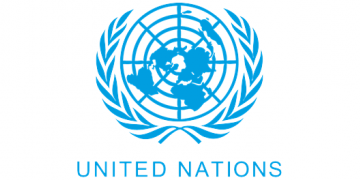
The United Nations Human Rights Council (OHCHR) has issued a statement concerning allegations against PT Astra Agro Lestari Tbk (Astra Agro).
In its publication, OHCHR has acknowledged the clarifications provided by both the Indonesian Government and Astra Agro. Furthermore, OHCHR has appointed a special rapporteur as an independent party tasked with monitoring developments related to Astra Agro’s business operations in Sulawesi.
This statement was released on December 9, 2024, and published on the website of the global organization in accordance with established regulations.
The Indonesian Government, represented by Achsanul Habib, Deputy Permanent Representative of Indonesia I (Dewatapri I) to the UN, submitted a written statement to OHCHR asserting that the majority of land owned by Astra Agro and its subsidiaries is subject to Cultivation Rights Title (HGU).
Mr. Habib indicated that Astra Agro has adhered to a rigorous clean and clear process to obtain HGU from the government. Additionally, the government ensures the company’s compliance with applicable regulations while engaging in consultations with local communities. Consequently, any land release by the community is contingent upon an initial agreement based on free, prior, and informed consent (FPIC).
Mr. Habib recognized that Indonesia, as a developing country, faces challenges related to post-colonial agrarian reform. Nevertheless, he emphasized the government’s significant efforts in addressing overlapping land claims and implementing digital land registration.
From 2019 to 2023, the government has certified a total of 9.1 million hectares. Moreover, as the world’s largest archipelago, Indonesia remains committed to advancing agrarian reform to safeguard the rights of all Indonesian citizens, including indigenous populations.
The Indonesian Government is devoted to fostering constructive collaboration with all relevant stakeholders in the promotion and protection of human rights. “We commend Astra Agro’s commitment to ongoing dialogue with the Indonesian Government, and we remain prepared to engage in constructive communication and collaboration,” stated Mr. Habib.
In response to human rights and environmental concerns raised by various non-governmental organizations, Astra Agro has undertaken several initiatives to address these issues, including the facilitation of dialogues with independent third parties. However, the company continues to encounter challenges in establishing meaningful communication, primarily attributed to an insufficient response from pertinent community organizations or institutions.
Astra Agro has also issued clarifications regarding the allegations levied against its subsidiary, emphasizing that its operations are based on free, prior, and informed consent (FPIC) and analogous agreements.
This includes socialization activities involving representatives from village, local, and community governments, along with discussions and compensation for crops cultivated on the land prior to the initiation of plantation development operations, all conducted in accordance with applicable regulations at the time.
Astra Agro is fully committed to upholding human rights policies and asserts that it is not engaged in any form of land grabbing or violations of human rights. The company’s operations comply with all relevant laws.
All forms of land acquisition are initiated through socialization and compensation stages, which involve community participation and the input of village officials. The compensation value is mutually agreed upon, ensuring that no compensation is disbursed without the recipient’s consent.
To facilitate the submission of complaints by the public, Astra Agro has established an accessible complaint mechanism on its website, Astra-agro.co.id.
The following document constitutes the Joint Communication statement between the Government of Indonesia, OHCHR, and Astra Agro. For further details, please refer to the provided link:
https://spcommreports.ohchr.org/TMResultsBase/DownLoadFile?gId=38801



